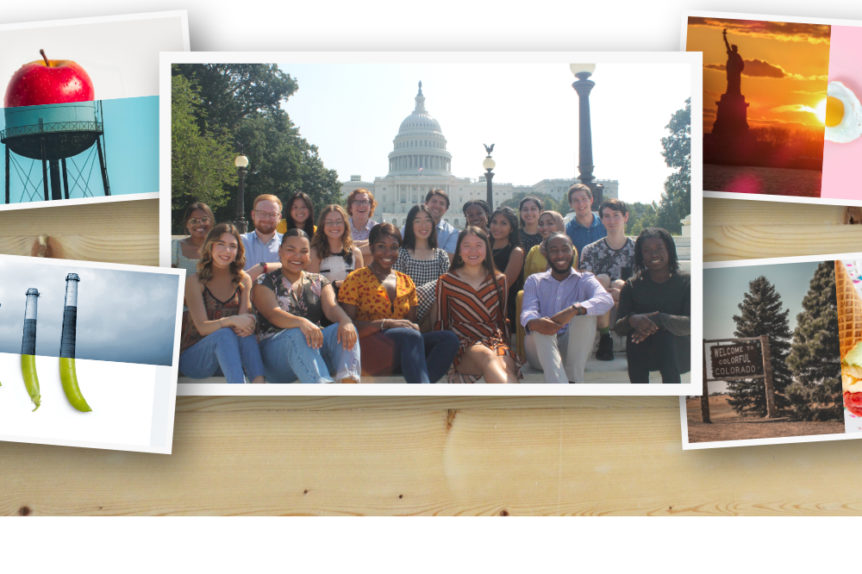On Thursday, February 17, the 28th Class of Bill Emerson National Hunger Fellows presented findings from their field placements in a briefing entitled “A Snapshot of Hunger in America.”
Presentations showcased innovative strategies and approaches for ending hunger at the community level across the country. Working in 10 states and the District of Columbia and partnering with 15 different host organizations, the fellows’ presentations covered topics including local food purchasing policy in Chicago, Illinois; the effect of affordable housing bonds in Portland, Oregon; improvements to school meals in Tulsa, Oklahoma, and Boston, Massachusetts; building racial equity in anti-hunger organizations in Baltimore, Maryland; approaches to reducing hunger among seniors in Washington, D.C.; and many more.
See all Fellows’ Presentations Here
“Our country faces a number of serious challenges, but hunger doesn’t have to be one of them,” said Program Director Tony Jackson. “We have the food, the resources, and the expertise to make hunger a thing of the past—all we need is the political will. These emerging leaders are ready to bring their community experience to a federal audience and share how we can make our country’s hunger response more just and more effective.”
The briefing drew an online audience of policymakers, nonprofit and corporate leaders, Hunger Fellow alums, and others, to hear how community-based organizations are addressing the root causes of hunger and poverty as the country navigates overlapping health and economic crises.
“Until we end hunger in this country, ‘justice for all’ is out of reach for millions of our neightbos, our family members, our coworkers, and our classmates,” said Executive Director Shannon Maynard (Emerson ’98) in opening remarks. “We need leaders who are capable of reminding each of us that many of us are likely a paycheck away from needing the services, programs, and policies that will be discussed here today.”
“These field report presentations and the research the fellows have conducted while working at community-based organizations throughout the United States bring timely relevant perspectives to those of us who working in the nation’s capital,” said Rep. James P, McGovern, in prerecorded remarks. “They also allow us to gain critical insights into what is working, what is not working, and what we need to do to better address hunger and poverty in the United States.” McGovern serves as Hunger Center Board Chair.
“As we come up on the 30th anniversary of our founding, which we will recognize in 2023,” remarked Hunger Center Board Secretary Katharine Emerson, “I am inspired by the Emerson Program’s commitment to deepening its reach by working with underserved communities including organizations serving Tribal nations and rural Appalachia, and learning around racial equity in food security programming. We’ve come so far since 1993, with over 500 Emerson alums having graduated from the program, and I’m so excited to see the impact that the current class will bring to the fight against hunger.” Emerson is the daughter of former Rep. Jo Ann Emerson and the late Rep. Bill Emerson, in whose honor the fellowship is named.
In addition to live presentations fellows have also prepared Hunger-Free Community Reports, which detail their findings and recommendations for anti-hunger advocates and service providers and will be shared on the Hunger Center’s website. Reporting on strategies and results from community-based work has been a key component of the Emerson Fellowship since its beginnings in 1994.
The briefing came at the midpoint of the fellows’ training in preparation for their policy placements. This week fellows will begin their work with Washington, D.C.-based think tanks, nonprofit advocacy organizations, and federal agencies.
Special thanks to USDA, the Kroger Co. Foundation, PepsiCo, and C&S Wholesale Grocers, whose support makes the work of the 28th Class of Emerson Fellows possible.

